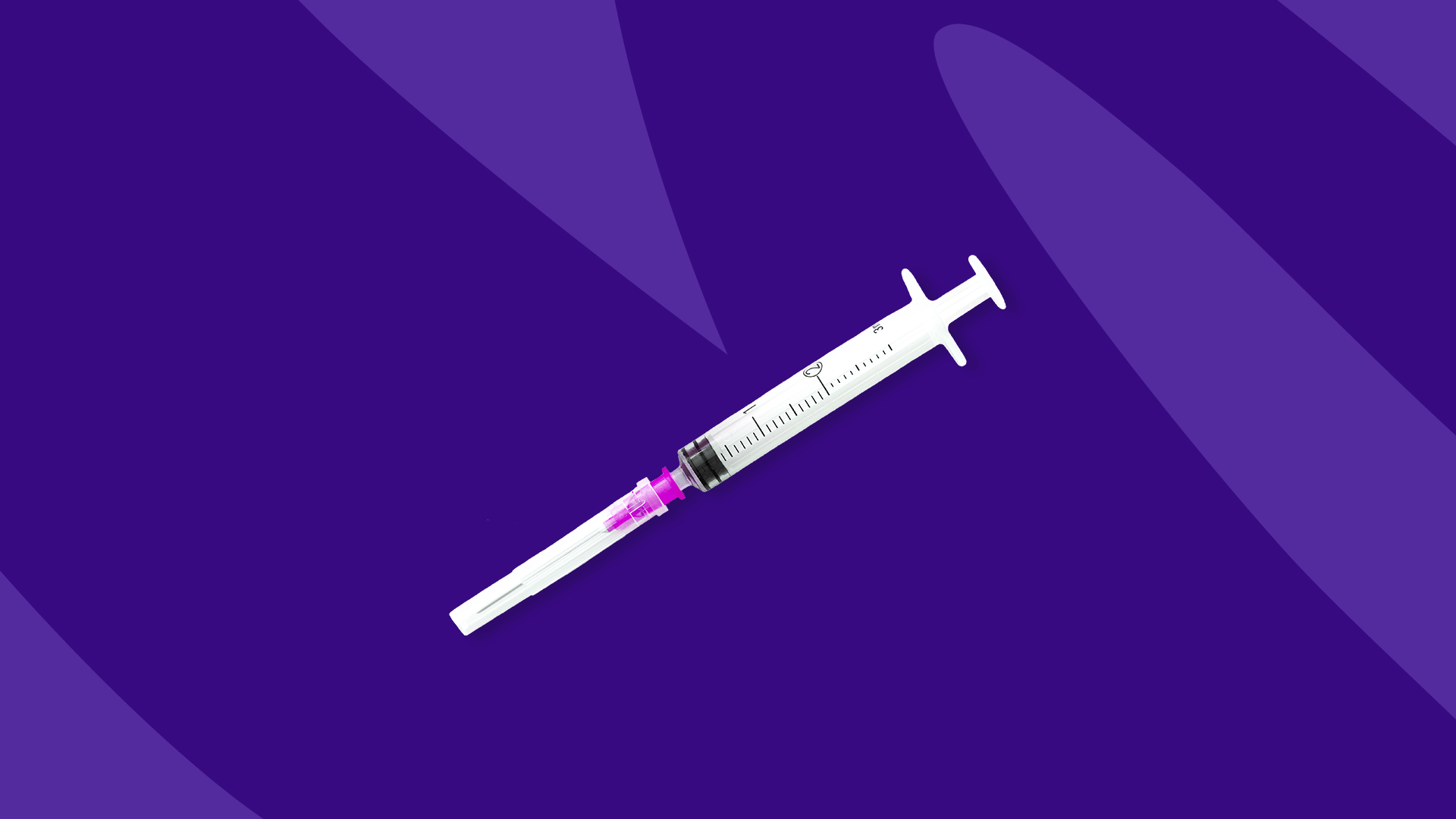Does Medicare cover vaccines? | Part B vaccine coverage | COVID vaccine coverage | Part D vaccine coverage | How to get vaccinated | Are vaccines free with Medicare? | How to save money on vaccines
Vaccinations play an essential role in public health by preventing the spread of infectious diseases. According to the World Health Organization (WHO), vaccines are available for more than 20 life-threatening diseases and prevent 2 to 3 million deaths worldwide each year.
“Vaccination coverage is important for Medicare-aged adults because there are many vaccines that are recommended in that particular age group,” says Samantha Brandon Boartfield, Pharm.D. “For example, annual influenza, pneumococcal, and zoster are all vaccinations that a Medicare-aged adult may be eligible for depending on their personal vaccine and health history.”
Younger people with certain conditions, such as End-Stage Renal Disease or Lou Gehrig’s disease, are also eligible for Medicare and may be considered high risk for some vaccine-preventable diseases, like Hepatitis B.
Here’s a general overview of Medicare vaccine coverage, including which parts cover vaccines, which vaccines are covered, and how Medicare consumers can get vaccinated for free or at a low cost.
Does Medicare cover vaccines?
Although Medicare covers vaccines, only certain parts of Medicare provide these benefits. It’s important to understand which vaccines may be covered under each Medicare plan so you prepare accordingly. A plan’s formulary will have additional details regarding the specific vaccines that are covered by your specific insurance plan.
What vaccines are covered by Medicare?
Medicare Part B vaccine coverage
Medicare Part B (outpatient medical insurance) covers only a few vaccines as part of Medicare’s Preventive Services. In order to receive a Medicare-covered vaccine, you must see a participating provider.
Vaccines covered by Medicare Part B include:
- Influenza (flu) vaccine: Part B covers one flu shot per flu season. You can get the vaccine upon request without a physician’s order. Covered flu shots include Fluad and Fluzone High-Dose. Learn more about Medicare coverage of flu shots here.
- Pneumococcal (pneumonia) vaccine: Part B covers the first shot at any time and a different, second shot—if it’s administered at least one year after the first shot. A physician must prescribe the vaccines. Covered pneumonia vaccines include the Pneumococcal conjugate vaccine (Prevnar 13) and the pneumococcal polysaccharide vaccine (Pneumovax 23). Learn more about Medicare coverage of pneumonia shots here.
- Hepatitis B vaccine: Medicare coverage is limited to those considered medium or high risk for Hepatitis B, including those with hemophilia or End-Stage Renal Disease (ESRD). Your physician will also need to write a prescription for it. Covered Hepatitis B vaccines include Heplisav-B.
Part B also covers vaccines needed to treat an injury or illness, such as a tetanus shot after stepping on a rusty nail or a rabies vaccine after getting bitten by a stray animal.
RELATED: Should you get the Hepatitis B vaccine?
COVID vaccine coverage
Medicare Part B and Medicare Advantage plans cover the COVID-19 vaccine at no cost to consumers. In cases where other services are provided during the same appointment as the COVID-19 vaccine, you may still be required to pay for those additional services, including the office visit.
Medicare also covers COVID-19 vaccine booster shots at least five months after your second dose of the Pfizer or Moderna vaccine series, or at least two months after you received the Johnson & Johnson vaccine.
If you paid or were billed for a COVID-19 vaccine, contact your provider’s office to discuss these charges. You should not be charged any fees associated with getting the COVID-19 vaccine. However, if you were, report it to the Office of the Inspector General, U.S. Department of Health and Human Services by calling 1-800-HHS-TIPS or visiting tips.hhs.gov.
RELATED: What to expect after the coronavirus vaccine
Medicare Part D vaccine coverage
While Medicare Part B generally covers most vaccines you’ll need, Medicare Part D (drug coverage) covers additional vaccines to help prevent illness.
Medicare Part D is optional, so the following vaccines may not be covered if you do not have Part D coverage. Part D provides prescription drug coverage for Medicare beneficiaries through private insurance companies. Part D coverage is available through either a stand-alone Part D prescription drug plan (PDP) if you have Original Medicare (Parts A or B) or a Medicare Advantage Plan with prescription drug coverage (MA-PD) through Part C.
Part D plans cover all commercially available vaccines that are reasonable and necessary to prevent illness, except those covered by Medicare Part B.
Preventive vaccines covered by Medicare Part D include:
- Herpes zoster (shingles) vaccine: Part D covers a one-time vaccine given in two shots over a two- to six-month period. Covered shingles vaccines include Shingrix. Learn more about Medicare coverage of shingles vaccines here.
- Tdap (tetanus, diphtheria, pertussis) vaccine: Part D covers one shot if you’ve never been vaccinated, along with a booster every 10 years. Covered Tdap vaccines include Daptacel and Boostrix.
- MMR (measles, mumps, rubella) vaccine: Some adults may only need one dose; however, certain adults may need two doses scheduled at least 28 days apart. Covered MMR vaccines include M-M-R Ii.
- Varicella (chickenpox) vaccine: The Centers for Disease Control and Prevention (CDC) recommends two doses of the chickenpox vaccine scheduled at least 28 days apart. Covered chickenpox vaccines include Varivax.
- Other vaccines covered: Vaccines that are reasonable and necessary to prevent illness but aren’t covered by Part B are also covered by Medicare Part D plans.
Part D plans may also cover vaccines needed for traveling internationally. Discuss upcoming travel plans with your doctor or healthcare provider to determine which vaccinations you may need. Common vaccines recommended for traveling abroad include yellow fever (Yf-Vax) and Hepatitis A (Havrix or Vaqta).
How to get vaccinated
Vaccine appointments are available at many locations throughout the United States. “A great place for people to get vaccines is their local pharmacy or provider office,” explains Dr. Boartfield. “You can also check out your local and state health departments for a list of more options near you.”
Not all providers can administer every vaccine and not all providers accept Medicare, so it’s best to check ahead of time. If you have drug coverage through a Medicare Advantage plan, your network of providers may be more limited than those with Original Medicare and a stand-alone Part D plan.
Some vaccines require a doctor’s prescription. “Most vaccines are available at your local pharmacy without a prescription, however, there are a few less common vaccines that still may require a prescription. This varies by state. The best way to determine this is to consult your local pharmacy or health clinic to determine which ones require a prescription,” says Dr. Boartfield.
Are vaccines free with Medicare?
While some vaccines may be free with Medicare, that’s not always the case.
Vaccines covered by Medicare Part B plans are generally provided at no cost to you if the provider accepts Medicare. However, as mentioned above, you may owe a copay or coinsurance for the visit if you receive other services at the same time as the vaccination.
The cost of vaccines covered by Medicare Part D varies based on the specific plan and the location where you get vaccinated. Pharmacies can often administer vaccines at a lower cost than doctor’s offices. That said, you may be responsible for copayments, coinsurance, and deductibles.
Regardless of the Medicare plan, the COVID-19 vaccine is free—you shouldn’t have to pay a deductible, copayment, or an administration fee.
How to save on vaccines
When fees or copays apply to vaccines, there are ways to save money. Pharmacy savings cards, like SingleCare, can help offset out-of-pocket costs. This is especially helpful if you do not have Medicare vaccine coverage. The exact savings vary by location, so always check here for the most up-to-date price. You can sign up for a free SingleCare discount card here and keep it with you at all times.
Free and low-cost vaccines may also be available through local health centers and state health departments. Some may qualify for preventative services, including vaccines, through federally funded programs. Find a federally funded healthcare center near you.
If you have both Medicare and Medicaid coverage, you could have access to additional vaccines through Medicaid than through Medicare. Contact your state’s Medicaid office for more information.
If you paid for a vaccine that your Medicare plan should cover, you may be entitled to reimbursement. Review your Medicare Summary Notice (MSN) or Explanation of Benefits (EOB) and contact your provider’s office to discuss any incorrect charges. Part B consumers should report anything suspicious to Medicare by calling 1-800-MEDICARE (1-800-633-4227), while Part D consumers should first contact their plan.











